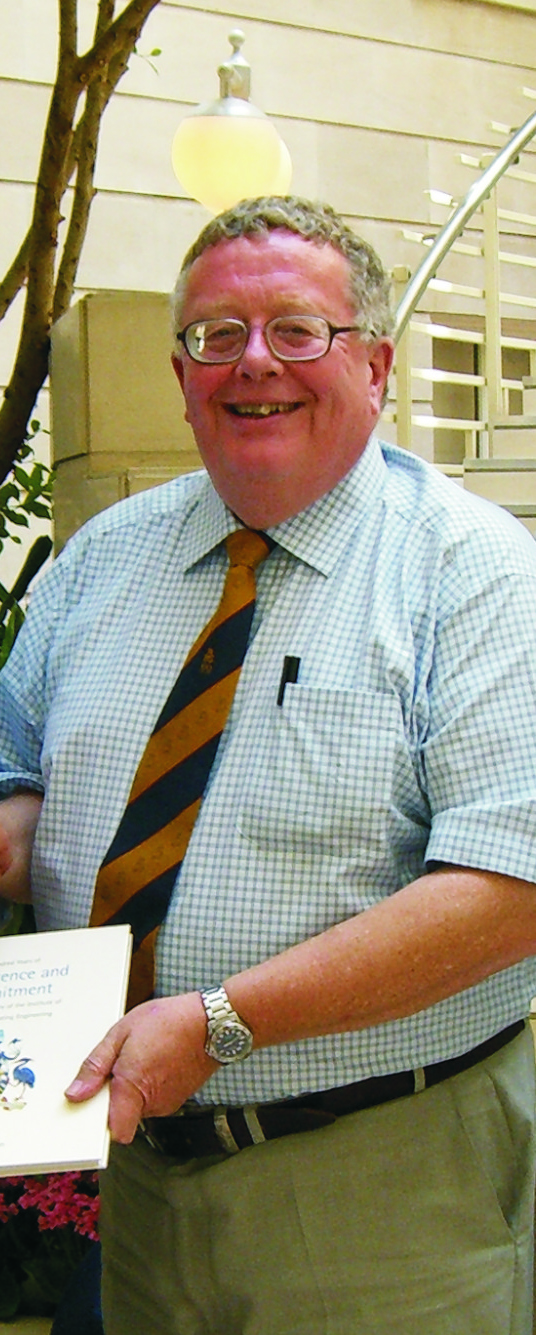Andy Watts retires from WPC

RW: How and when did you get involved in WPC?
AW: As Chief Executive of what is now the Chartered Institute of Plumbing and Heating Engineering (CIPHE), we helped organise the second World Plumbing Conference in London in 1990. This attracted 1,200 delegates from some 30 countries. During the Conference, the World Plumbing Council (WPC) was formed with CIPHE Past Presidents Geoff Marsh MBE, as Chairman and Bernard Bateman MBE, as Secretary. At the 1996 Chicago Conference, I took over as Secretary incorporating this role within my full-time CIPHE duties. When I retired from CIPHE in July 2006 I continued as Secretary for the remainder of my fourth three year term.
RW: What has been achieved by WPC during your 12 years as Secretary?
AW: It has been very satisfying to see WPC grow in international stature primarily through developing close working relationships with such organisations as WorldSkills International and the World Health Organisation (WHO).
Contact with WHO had been made soon after WPC was formed. But the catalyst for our present day relationship was a proposal to revise the Guidelines on Health Aspects of Plumbing. This publication had been produced in 1982 by a WHO-recognised agency but without any plumbing industry involvement.
WHO took up this idea and nine years later, in March 2006, the revised Health Aspects of Plumbing (HAP) was published jointly by WPC and WHO in Beijing.
This was a very proud moment for me, but the credit for this momentous achievement must go to my WPC colleague and friend, Russ Chaney of IAPMO, without whose dedication and commitment the project would not have seen the light of day.
Following on from publication of HAP has been WHO’s official recognition of WPC as a Non-Governmental Organisation and secondment of WPC’s John McBride. John has been taking forward projects which relate to the core principles of HAP – standards, regulation and training.
In short, WPC’s work with WHO has highlighted the linkage between good plumbing and public health. A solid foundation has therefore been laid to take forward other initiatives.
RW: What sort of other initiatives?
AW: The world is experiencing climate change, doesn’t have enough water in the right places and is running out of oil. The drive to save water and energy is plumbing related. Good plumbing must now be ‘Green Plumbing’. WPC is in a unique position to help influence international thinking and practice and already consideration is being given to producing guidance, perhaps entitled Environmental Aspects of Plumbing. With the world in its current state of economic and political turmoil, now is the time to pool knowledge and expertise ‘for the betterment of all’.
RW: WPC has an interest in training. What is it doing in this area?
AW: In 2004, Past WPC Chairman, Stuart Henry signed a Memorandum of Understanding between WPC and WorldSkills International – the equivalent of the Olympics in vocational skills training. In the years prior to that and since, WPC has presented medallions to the plumbing competitors and their country ‘experts’ at the biennial WSI apprentice competitions – the only international industry-specific organisation to do so. We know that WSI holds WPC in high regard and I can see that relationship getting stronger because the Council can help WSI incorporate the green agenda in promoting a more sustainable approach to its competitions.
With 1,400 competitors and 250,000 visitors expected at the 2011 competition in London, WorldSkills International is highly relevant partner to help further WPC’s mission ‘… to safeguard and protect the environment and the health of nations, for the benefit of all.’
For the past six years WPC has also offered a Lecturer and Trainer Award. The aim is to facilitate dissemination of knowledge and expertise amongst vocational training experts. The winner of the Award receives USD10,000 and visits a country of their choice to see how vocational training is organised.
Lastly, John McBride, WPC’s secondee to WHO, is developing a training package in safe plumbing practice for use in developing countries and trials are planned in the Solomon Islands and India.
RW: What about WPC as an organisation?
AW: WPC is just 18 years old which is very young for an international organisation. I think it has achieved a lot but its development can only go at the pace its members and resources allow. Furthermore, all its participants are voluntary apart from the newly-appointed service provider. This is a welcome development as it will help consolidate the routine work currently handled separately by the Secretary and Treasurer.
RW: What in your opinion can sustain WPC’s long term future?
AW: By remaining attractive and relevant to the global plumbing fraternity. With such attributes, WPC will attract hard working and dedicated plumbing people who care passionately about what they do. Therefore I’m confident that for the foreseeable future, under Robert Burgon’s Chairmanship – ably supported by Deputy Chairman, Russ Chaney and the rest of the Executive Board – WPC is in good hands. I have been privileged to have played a part in its progress thus far, so long may WPC continue to flourish!
